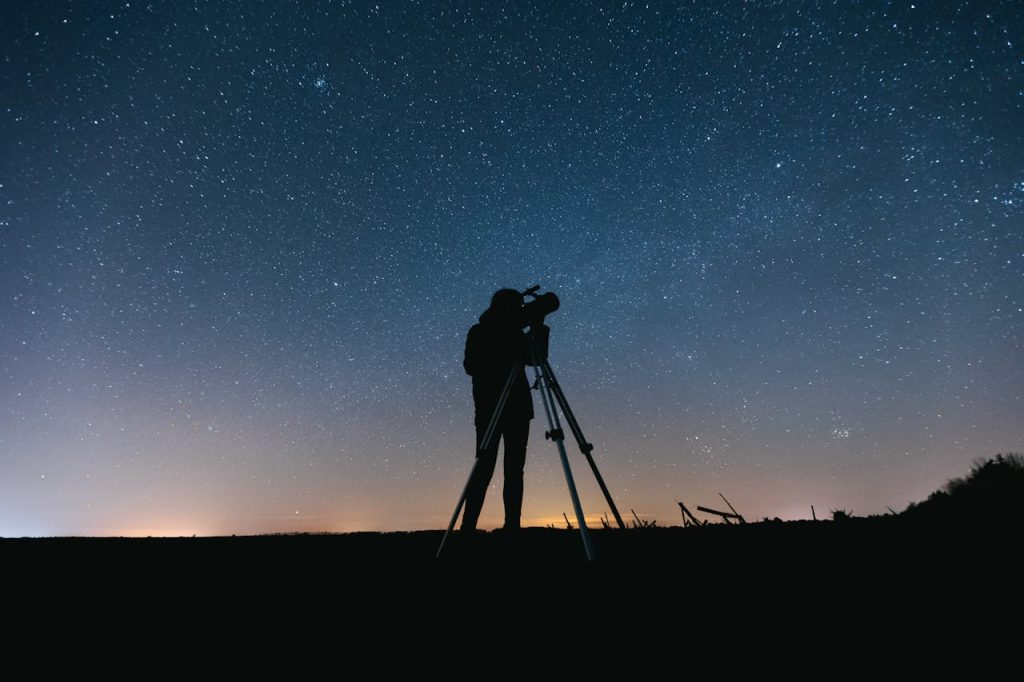Your cart is currently empty!
Emma Stone Says Disbelief in Aliens Reflects Human Narcissism

At the Venice Film Festival, amid the glamour of red carpets and the anticipation of new cinema, Emma Stone made a statement that carried far beyond film promotion. Known for playing characters who navigate surreal worlds, she shifted the conversation from fiction to something far larger: our place in the universe. When asked about extraterrestrial life, her answer was not a joke or a quick dismissal. It was a declaration that disbelief in aliens is not just unlikely, but “narcissistic.”

Her words echoed through the press room, catching reporters off guard. This wasn’t a stunt or a scripted moment tied to her sci-fi comedy Bugonia. It was the actor revealing a conviction shaped by science, philosophy, and a deep respect for one of history’s great astronomers.
The Moment in Venice: What She Actually Said
During the Bugonia press conference at the Venice Film Festival, Stone anchored her view to Carl Sagan’s legacy, telling reporters, “One of my favorite people who has ever lived is Carl Sagan and I fell madly in love with his philosophy, science and how brilliant he is.” The exchange turned playful when a reporter joked about fame turning her into an alien. Stone didn’t miss a beat: “How do you know I’m not an alien?”

She then widened the lens to the realities of public life and identity. “I think there’s a tricky aspect to that answer that’s probably longer than anything that anyone would want to listen to right now. I think everyone sort of deals with that now,” she said, before explaining the split between persona and self: “We all can relate to that feeling of someone thinking they know you, feeling like you don’t have much control of the avatar outside of me. Because there’s me, and then there’s me, here. There’s the person who comes here and then there’s the person who I am with my friends and family. They’re the same person, but it’s what I do to keep myself sane.”
Carl Sagan’s Influence and the Case for Cosmic Humility
Stone connected her position to scientific thinking, arguing it is “a pretty narcissistic thing to think” humans are “truly alone out here,” and adding, “So, yes, I’m coming out with it: I believe in aliens.”
That stance aligns with mainstream frameworks scientists use to consider life beyond Earth. The Drake Equation offers a way to estimate how many civilizations might exist by combining astronomical and biological factors, while acknowledging major uncertainties. In contrast, the Fermi Paradox highlights the tension between those probabilities and the lack of confirmed contact or evidence to date.

Taken together, these ideas support Stone’s emphasis on humility: life elsewhere is plausible, yet extraordinary claims still require extraordinary evidence. Current consensus remains that there is no verified detection of extraterrestrial life, even as discovery tools and exoplanet data improve.
Celebrity, Identity, and the Alien Metaphor
Fame often separates a person into two versions that move in parallel. There is the private self that lives among family and friends, and the public figure that others interpret through headlines, premieres, and social feeds. Conversations about extraterrestrial life become a revealing mirror for that experience. The alien stands in for a presence that is closely watched yet persistently misread, a figure onto whom audiences project stories that may or may not reflect the person behind the work.

Seen through that lens, a light, well-timed joke is not a throwaway line but a tool for control. By meeting a provocative question with playfulness, a star reframes the exchange, signals boundaries, and keeps the focus on the work rather than the rumor. It is a way to acknowledge curiosity without surrendering privacy. The result is a balanced posture that resists spectacle while still inviting engagement, which is increasingly rare in a culture that rewards instant conclusions over considered context.
Where Evidence Stands Today
There is no confirmed discovery of extraterrestrial life. Scientists treat the question as open but unresolved, and they define proof in strict terms that can be independently verified and reproduced. The search focuses on signs that could indicate biology or technology, such as unusual atmospheric chemistry on distant planets or signals that follow patterns unlikely to occur by chance. Progress arrives through better instruments and careful data analysis rather than viral moments.
This context matters for how audiences interpret a celebrity’s belief. Finding life elsewhere can be a reasonable stance given the scale of the universe, yet it still sits alongside the requirement for evidence. Holding both ideas at once keeps attention on what can be measured and confirmed, which is where discovery ultimately moves from speculation to fact.
Practical Ways to Explore the Alien Question Responsibly
For those who follow celebrity news with a critical eye, the most useful approach balances curiosity with care. When a star’s comment touches science or philosophy, the goal is clear context, precise language, and sources that let audiences verify the moment for themselves.

- Prioritize primary sources. Track down the full video, audio, or transcript of the exchange before forming a take. Tone, pacing, and follow ups matter.
- Verify quotes exactly. Use only verbatim lines that appear in the source. If versions differ across outlets, cite the clearest primary recording or transcript and link it directly.
- Separate belief from evidence. It is reasonable to consider life elsewhere plausible while noting there is no confirmed discovery. State both plainly to avoid sensational framing.
- Lean on credible science explainers. When readers want context, point them to established institutions and peer reviewed reporting rather than rumor driven sites. This keeps curiosity anchored to reliable information.
- Note the project context. If remarks occur during a film festival or promo Q and A, acknowledge how the project’s themes shaped the question without dismissing a sincere view.
- Watch for humor drift. A playful line can become a headline claim once isolated. If a comment was a joke or a light aside, label it as such.
- Apply a simple claims test. Who is making the claim, what primary evidence is presented, and has an independent expert assessed it. If any answer is unclear, treat the claim as unverified.
- Keep language precise. Favor verbs like said, added, clarified. Avoid wording that implies confirmation where none exists.
- Invite curiosity without hype. Offer readers accessible explainers on how scientists search for life. Encourage questions and ongoing learning rather than certainty without data.
- End with proportion. Acknowledge the cultural interest while reminding readers that real discoveries arrive incrementally and are evidence based. This preserves both wonder and credibility.
Why the Alien Question Surfaced at Venice
Festival press rooms often follow the themes a film puts on the table. Bugonia invites speculation about what we consider credible, how we respond to fear, and why conspiracy narratives spread. In that setting, questions about extraterrestrial life were not a detour but a direct extension of the film’s premise, giving reporters a chance to test where playful fiction meets personal belief.

The exchange also reflects a broader industry moment where sci-fi is less about gadgets and more about cultural inquiry. When actors connect a project’s ideas to real-world questions, it signals that the conversation is bigger than marketing. The result is a tighter feedback loop between cinema and public imagination, where a festival Q and A can become a thoughtful forum rather than a soundbite machine.
Public Opinion Snapshot: Where Audiences Stand
In the United States, the center of gravity leans toward openness to life beyond Earth. A survey conducted June 14 to 24, 2021 found that 65 percent of Americans say their best guess is that intelligent life exists on other planets, and 51 percent say UFOs reported by people in the military are probably or definitely evidence of such life.
Views vary by age and gender, and especially by religiosity. Pew reports that 76 percent of adults under 30 say intelligent life exists on other planets, compared with 57 percent of those 50 and older; men are more likely than women to hold this view, 70 percent versus 60 percent. On religious measures, U.S. Christians are less likely than the religiously unaffiliated to say intelligent life exists, 57 percent vs. 80 percent, and weekly attenders are far less likely than those who seldom or never attend services, 44 percent vs. 75 percent.
Global snapshots show a wide range of expectations. In Ipsos’ 2023 Global Predictions survey fielded in late 2022 across 24,000 adults in 36 countries, 18 percent globally said aliens would visit Earth in 2023, with notably higher expectations in some markets such as India at 43 percent. While that question gauges a near term expectation rather than a general belief, it illustrates how the topic resonates differently by country.
Public trust and transparency also shape attitudes. A March 2024 YouGov survey found only 11 percent of Americans believe the U.S. government has told the public everything it knows about UFOs, with skepticism cutting across party lines.
Humility in a Vast Universe
Emma Stone’s comment landed because it paired curiosity with proportion. She linked a pop culture moment to a larger question without drifting into spectacle, used humor to keep boundaries intact, and framed belief as an exercise in humility rather than certainty. In an environment where soundbites often outrun substance, that balance matters. It invites audiences to stay curious, ask better questions, and keep the conversation tethered to credible context.
Featured Image from Gerald Geronimo, CC BY-SA 2.0, via Wikimedia Commons
